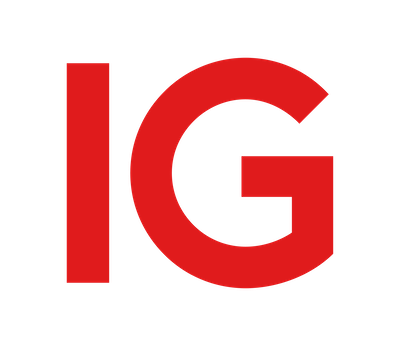
Europe's online gambling industry is changing fast. As rules change, player habits evolve, and new tech enters the scene, Europe’s online gambling space is going through major changes. Investors need to stay in the loop. This article explains what's changing in the market, how people are investing now, who the key players are, what regulations look like, and how new technology is changing everything. It'll help you figure out where to put your money.
Shifting Demographics and Player Profiles
Europe’s iGaming audience is evolving fast. What was once a space dominated by older users on desktop casino and sports betting sites is now being reshaped by a younger crowd in their twenties and early thirties. These players are drawn to fast, interactive formats like mobile casino apps, live dealer tables, and skill-based competitions that combine entertainment with instant engagement.
This changes everything. Mobile-first platforms that deliver smooth gameplay, instant deposits, and built-in social features are now outperforming traditional setups. For investors, mobile usability and app performance are becoming signs that a company will do well long-term.
More types of people are starting to play. Countries like Sweden, the Netherlands, and Portugal are seeing increased interest from female players, especially in online casino segments. While sports betting remains male-dominated, the casino experience is becoming more balanced. This opens the door to more inclusive design, diverse game themes, and stronger market expansion.
In Sweden, changes in regulation have also affected where players choose to gamble online. As Linda Yamamoto notes, many users are opting to play at safe casinos without Spelpaus access. These platforms are appealing to players with their flexible access, fast withdrawals, and wide variety of games, benefits that strongly align with the preferences of today’s mobile-first player base.
Companies that don't get these changes will get left behind. The platforms that adapt quickest will do best in Europe’s competitive and fast-changing iGaming landscape.
Regulatory Rebalancing and Market Access
Europe’s regulatory environment remains fragmented, with each country enforcing its own licensing frameworks, tax regimes, and advertising restrictions. But several big countries are cleaning up their rules. Germany’s new state‑based licensing system, for example, while more restrictive in some respects, has replaced a previously fragmented system of grey‑market tolerance and enforcement uncertainty. Licensed operators now enjoy clearer legitimacy and access to formally regulated customer pools.
The UK is tightening its rules around consumer protection and marketing, but it remains one of Europe’s biggest regulated iGaming markets. Operators that stay ahead by following responsible gaming practices are more likely to thrive and avoid compliance pitfalls.
At the same time, countries like Romania, Greece, and Italy are making it easier for new companies to get started, creating fresh opportunities for flexible companies. Companies that get in early and adapt to local preferences stand a better chance of getting known in the market before the market gets crowded. For investors, these expansion strategies are worth watching closely.
Technology and Product Innovation
Technological innovation is reshaping how European consumers engage with iGaming content. Live dealer studios, virtual reality lounges, and blockchain‑based provably fair gaming are evolving from niche offerings into mainstream features. Operators that offer immersive experiences, in‑game features, polished mobile UIs, and real‑time interactions stand to attract more engaged users and extend session lengths.
Companies are also using data to personalize engines and are improving retention. Customers now receive tailored game suggestions, messaging timed to natural breaks in gameplay, and loyalty offers matched to past behavior. When companies personalize the experience, players stick around longer and spend more for existing users, making it something investors really need to look at of operator quality.
Skill‑based and esports betting, too, are growing adjacent segments. Younger users are increasingly interested in wagering on competitive video gaming tournaments or playing games where outcomes depend partially on player skill rather than pure chance. Platforms that bridge casino-style offerings with esports or skill‑based games may capture cross‑segment consumers. All this shows that content convergence is now influencing portfolio strategies.
Market Consolidation and Strategic Partnerships
Europe’s iGaming market is steadily consolidating, with bigger companies buying up local brands to enter new markets, get licenses, or bring in talent. Mergers help cut costs by streamlining tech, payments, and compliance, while opening up cross-market opportunities. One Nordic company, for instance, bought a Dutch brand to tap into the German market, showing how the right acquisition can open up new markets.
Investors should look for operators with a solid track record in acquisitions and a wide regional reach.
Partnerships are growing too. Media companies and football clubs are teaming up with iGaming brands to launch co-branded platforms. These deals boost trust, draw in players, and often lead to faster, more stable growth.
Payment Methods and Financial Flows
Players across Europe now expect instant, frictionless payment methods. Traditional cards and bank transfers remain common, but digital wallets, open banking solutions, and locally preferred options like iDEAL (Netherlands), Sofort (Germany), and Vipps (Norway) are gaining ground. Faster onboarding and withdrawal times reduce churn and improve player satisfaction.
Crypto‑friendly operators have also gained traction in markets where regulation permits. Blockchain‑based deposits allow pseudonymous transactions that some players prefer. While this remains a moderate niche in most European markets, it is worth considering if you want to invest in the future of payments in next‑gen payment infrastructure.
Payment providers that support many local methods, currencies, and fast payouts make players think the site is much better. Evaluating a company’s financial infrastructure, including KYC speed, fraud detection, and payout reliability, is now as important as looking at game content or brand appeal.
What These Trends Mean for Investors
For investors, the game has changed. It’s no longer just about who holds the most licenses or pulls in the biggest revenue. What really matters now is the quality of the product, how modern and mobile-friendly the platform is, who it appeals to, and how smooth the payment process feels.
The strongest operators are the ones offering engaging, mobile-first gameplay, expanding into newly regulated markets, using smart personalization, and supporting fast, flexible payments. Those with strong partnerships or acquisition strategies also tend to grow faster.
Conclusion
Europe’s iGaming scene is evolving fast. Younger players want mobile, social, and skill-based games, while tech like live casino and blockchain is changing how people play. With new markets opening and payments getting faster, the focus is shifting.
For investors, it’s no longer just about licenses or big revenues. The real winners are operators with smart, flexible platforms that keep up with change and deliver a great experience.





